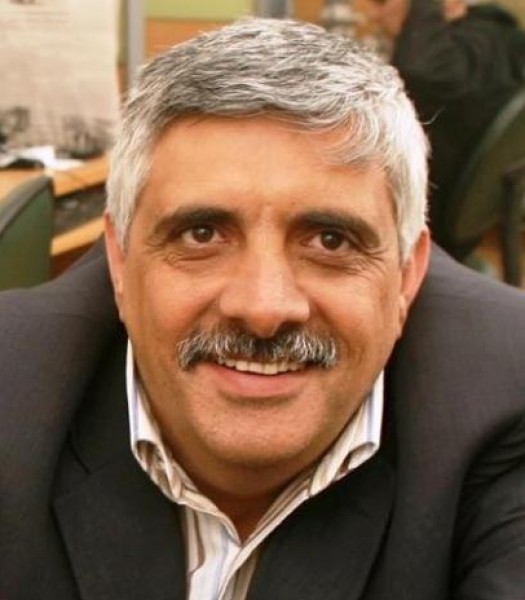خلقت الثورة الرقمية فجوة كبيرة في المنظومة الإعلامية بين كبريات المؤسسات الإعلامية ومجموعة كبيرة من المنصات الإعلامية. فمن ناحية، وفرت هذه الثورة لأي شخص إمكانية أن يصبح ناشرا، مما أدى إلى ظهور كم كبير جدا من المنصات الإعلامية التي تفتقر غالبيتها إلى المهنية الإعلامية. ومن ناحية أخرى، استولت المنصات الرقمية الجديدة على السواد الأكبر من دخل الإعلانات، إذ أصبح نحو 90% منها -حتى المحلية- تنشر على مواقع رقمية ضخمة مثل فيسبوك وغوغل ويوتيوب.
وفي صراع البقاء الذي فرضته الثورة الرقمية، شغل إعلام الإثارة دورًا أكبر لأسباب كثيرة، لعل أبرزها غياب المحرر المهني، والتسابق حول الأخبار السريعة. وفي هذا المضمار، أصبح ضروريا تجاوز هذا الإعلام، والعمل في مجال تكاملي يشمل عدم الاكتفاء بالكشف عن الحقائق، وإنما هناك ضرورة لتوفير خيارات لحلول منطقية للمشكلة، مع أهمية توضيح آثار تلك الحلول من كافة الزوايا.
ضمن هذا التخبط الإعلامي، يبرز أسلوب إعلامي جديد جاء نتيجة التغييرات في الملكية الإعلامية ونوعية المضمون الإعلامي، ونقصد صحافة الحلول المجتمعية (Solutions Journalism) التي تأتي في الوقت المناسب لوضع إطار مؤسساتي وفكري لأمور نفكر بها ونعمل عليها.
تقول الناشطة الحقوقية والوزيرة الأردنية السابقة والناطقة باسم الحكومة أسمى خضر إنه "منذ مدة ونحن نعمل في مجال قريب لموضوع صحافة الحلول المجتمعية، ولكن لم يكن لنا إطار واضح وآلية لتطبيق هذا الشكل المهم من أشكال الإعلام".
انبثقت فكرة صحافة الحلول بشكلها الحالي بعد أن تطور في أوروبا نظام مماثل يسمى "الصحافة البناءة" (constructive journalism) يهدف إلى استمرار أسلوب الصحافة الغربي المعروف. ويضيف هذا الأسلوب بعدا جديدا كان غائبا عن الممارسة الصحافية التي كانت موسومة بطغيان الطابع السلبي. ويتمثل هذا البعد في اقتراح خيارات حلول للمشكلة المطروحة، وما هي النتائج المترتبة عن تلك الحلول من حيث الجانب المالي أو الاجتماعي، أو تأثيره على العادات والتقاليد المتعارف عليها.
ولدت فكرة صحافة الحلول آواخر تسعينات القرن الماضي، من قبل صحفيين أميركيين داخل العديد من الصحف الكبرى، وقد توسع عمل أسلوبها لغاية أن أصبحت 170 غرفة أخبار في الولايات المتحدة تعمل بنظام صحافة الحلول المجتمعية.
ومؤخرا عقدت شبكة الإعلام المجتمعية ورشة عمل شارك فيها قرابة 60 صحفيا وإعلاميا أردنيا، ناقش فيها المشاركون كيفية إدخال مبدأ صحافة الحلول المجتمعية في عملهم. وكان هناك تجاوب في الورشة التي عقدت يوم 23 أكتوبر/تشرين الأول الماضي في العاصمة الأردنية عمان.
ليس هذا فقط، بل أصبحت صحافة الحلول ضمن منهاج العديد من كليات الإعلام، ومنها جامعة "تمبل" في مدينة فيلادلفيا الأميركية، حيث أسس رئيس تحرير صحيفة "سياتل تايمز" الأميركية ديفد بوردمان الذي أصبح عميدا لكلية الإعلام في الجامعة، منهج صحافة الحلول ودمج التدريس النظري مع تطبيق عملي بالتعاون مع الصحف والمؤسسات المحلية ومع مؤسسات مجتمع مدني محلية.
يقوم أسلوب صحافة الحلول على ضرورة توفير أمثلة عن قصص نجاح للموضوع المراد مقاربته. فمثلا، هناك مدارس في حي معين تعاني من زيادة في عدد الطلاب المتغيبين، لذلك يجب أن تأخذ المعالجة الإعلامية بعين الاعتبار عرض المشكلة بحذافيرها وبجرأة، ثم تقديم الحلول المقترحة. ومن خلال ذلك، قد يقدم الصحفي مثالا عن مدرسة ذات صفات مماثلة، نجح مديرها في التغلب على المشكلة.
وبذلك تكون صحافة الحلول قد حافظت على كل مزايا العمل الصحفي المعروف، ولكنها أضافت حلولا مقترحة وقصة نجاح طبقت في التغلب على المشكلة.
تركز صحافة الحلول على مجموعة من المبادئ المهنية التي تضمن تطبيق حاجة المجتمع إلى المعرفة والمعلومة الصادقة والمتوازنة، وفي الوقت نفسه توفر شمولية في التغطية الإعلامية، حيث من الضروري ألا يكتفي الإعلامي بكشف المستور، وإنما أصبح من أساسيات العمل الصحفي ضمن أسلوب هذه الصحافة أن يوفر خيارات لحلول منطقية يمكن تطبيقها لإيجاد حل للمشكلة.
ويحدد القائمون على فكرة صحافة الحلول المجتمعية أربعة عناصر يجب أن تتوافر في أي تقرير لكي يصنف في خانة هذا اللون الجديد من الإعلام.
في البداية، على التقرير أن يكون مرتبطا بقضية واقعية، فصحافة الحلول المجتمعية ليست مقال رأي أو تنظير محلل، لذا يجب أن يكون التقرير ميدانيا يشير إلى مشكلة محددة موجودة على الأرض.
ومن أجل إنجاح هذا اللون الجديد من الإعلام، يوصي القائمون عليه بضرورة الاهتمام بالإنسان، ونشر تقارير تركز على أشخاص لهم علاقة بالموضوع. وفكرة أنسنة الإعلام ليست جديدة، ولكن -كما يقول القائمون على الفكرة- يجب التمييز بين أنسنة الإعلام وخلق أبطال كرتونيين. فأنسنة الإعلام تتعامل مع أشخاص لهم علاقة مباشرة بالموضوع في غياب التنظير والتحليل من محلل ألِفَ راحة المكتب أو المنزل.
عمل صحافة الحلول المجتمعية يجب أن يكون مبدعا ويكسر المحددات المعروفة، حيث توفر ثورة المعلومات أدوات جديدة مثل صحافة البيانات ورسومات الإنفوغراف وإمكانية عمل روابط مع العديد من التقارير والمعلومات لمن يرغب في ذلك.
وقد يكون رابع شرط لممارسة صحافة الحلول أهمَّها، إذ يتطلب من الصحفي البحث الإضافي في خيارات متعددة لحل المشكلة التي يتمحور حولها التقرير. ويجب في هذا السياق، أن تشير الحلول بوضوح إلى الآثار الإيجابية والسلبية للحلول المقترحة، فقد تنطوي على آثار مالية أو اجتماعية أو عشائرية، ويجب توضيحها لكي يعرف المجتمع ثمن التوجه إلى تلك الخيارات.
لا شك أن إدخال أسلوب صحافة الحلول المجتمعية يفرض نوعا جديدا من إدارة واستدامة مؤسسات الإعلام. فعلى المؤسسات الإعلامية المهتمة ومؤسسات المجتمع المدني زيادة التنسيق والتشارك لما في ذلك من مصلحة مشتركة بينها، في عصر أصبح الإعلام ركنا أساسيا لأي عمل مجتمعي.
طبعا في هذا المجال، لا بد من العمل على التثقيف والتدريب وزيادة عدد الإعلاميين -خاصة الشباب- في المحافظات، مع ضرورة احترام المؤسسات الرسمية والخاصة في دعم صحافة الحلول بدلا من وضع العراقيل أمامها.
* الصورة: ليون نيل - غيتي.




















![Palestinian journalists attempt to connect to the internet using their phones in Rafah on the southern Gaza Strip. [Said Khatib/AFP]](/sites/default/files/ajr/2025/34962UB-highres-1705225575%20Large.jpeg)




















